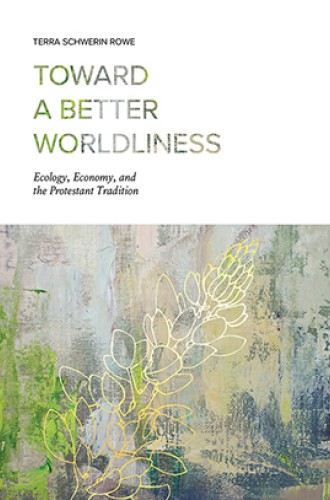Ours is an age of competition, in which we all play a zero-sum game. Terra Schwerin Rowe, who teaches philosophy and religious studies at the University of North Texas, imagines another way of living. “One of the most pressing tasks facing humanity today is to formulate alternative models of economy and exchange among humans and the other-than-human world. In so doing, we construct new ways of being in the world and new understandings of ourselves in relation to a multitude of others.”
Rowe’s formal task concerns economics and ecology, but she also seeks ways of living gracefully in an age bereft of grace. She develops “a profound and agentially empowering sense of gratitude that acknowledges we belong, body and soul, to a vast and humbling contingency ‘outside ourselves’” through which we can “become liberated from fear and anxiety to accept responsibility for a story larger than ourselves.” To live in grace, and to live through a graceful eco/nomics—Rowe’s portmanteau for merging economics and ecology—is to become responsible not simply for ourselves but to the world. It means learning to respond with care and love to the world, to others, and to God.
Rowe is a theoretically rich thinker. Moving from explorations of the gift in contemporary philosophy to christological debates in the early church, subtly weaving a path through the nuances of recent Finnish interpretations of Martin Luther, exploring ecofeminist and Marxist critiques of capitalism and Protestant theology, and picking up forgotten moments in Christian thought and practice, Toward a Better Worldliness is quite dense. But it’s also a breathtaking reminder that theology matters, the way to graceful living is not easy, and living well requires that we live thoughtfully.






